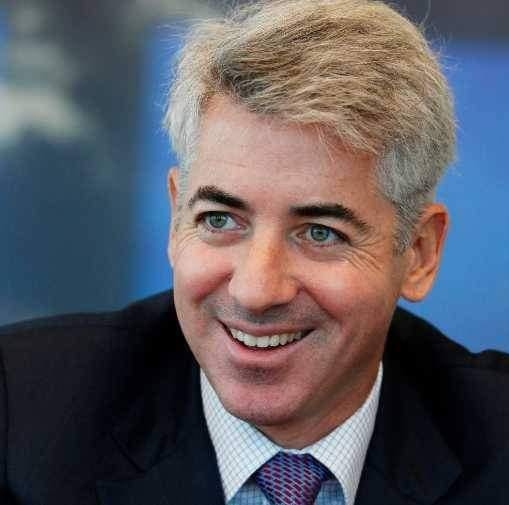
Ackman’s fund has purchased 3.1 million Netflix shares, valued at more than $1.1 billion
Billionaire investor William Ackman has built a new stake in streaming service Netflix Inc
Bill Ackman disclosed a new, billion-dollar bet on Netflix and released the following letter to its investors on Wednesday.
Dear Pershing Square Investor,
Beginning on Friday and over the last several days, we acquired more than 3.1 million shares of Netflix, Inc. (NASDAQ:NFLX), making us a top-20 shareholder in the company. The opportunity to acquire Netflix at an attractive valuation emerged when investors reacted negatively to the recent quarter’s subscriber growth and management’s short-term guidance. Netflix’s substantial stock price decline was further exacerbated by recent market volatility.
We have greatly admired Netflix both as consumers and as investors, but have never previously owned a stake in the company. Netflix is a primary beneficiary of the growth in streaming and the decline in linear TV driven by its superior customer experience, a vast and diverse amount of superb, constantly refreshed content, global improvements in bandwidth, and the proliferation and continuous improvement and convenience of devices on which one can watch.
Netflix’s business has highly favorable characteristics which include:
its subscription-based, highly recurring revenues, which have enormous future growth potential
a truly best-in-class management team and unique high-performance culture (consider Netflix’s remarkable pivot from DVD rental by mail, to video streaming, to becoming one of the greatest producers of beloved content ever)
economies of scale and superb quality in its industry-leading content, which should continue to drive future growth and widen the company’s powerful competitive moat
pricing power derived from the enormous value it delivers to consumers compared with other alternatives
substantial margin expansion, with the opportunity for continued improvement due to economies of scale and the company’s rapidly growing, global subscriber base
an improving free cash flow profile which should allow for continued investments in growth as well as the return of cash to shareholders
We began analyzing Netflix in connection with our investment in Universal Music Group, so we were prepared when the stock price declined sharply last Friday. Now with both UMG and Netflix, we are all-in on streaming as we love the business models, the industry contexts, and the management teams leading these remarkable organizations.
In order to fund our purchase of Netflix, beginning on Friday and over the last few days, we unwound the substantial majority of our interest rate hedge generating proceeds of $1.25 billion. We retained interest rate swaptions that are currently out-of-the-money, and also purchased some additional longer-dated, out-of-the-money swaptions. The result of all of the above is that the notional size of our interest rate hedge has been reduced by 80%, the term of a substantial portion of the hedge we retain has been extended, and our dollar investment in hedges has been reduced by more than 90%.
Had we not sold the hedge, we could have likely realized more gains based on the increase in rates, largely today, since our sale. That said, we believed the opportunity to invest in Netflix at current prices offered a more compelling risk/reward and likely greater, long-term profits for the funds.
We invest in hedges not to protect the funds from a short-term mark-to-market loss, but rather because they can become a large source of potential liquidity at precisely the time stocks become cheap. We invest in asymmetric hedges as they offer the opportunity for large gains without exposing the portfolio to meaningful losses in the event the potential risk does not transpire.
We invested in out-of-the-money interest rate swaptions in December 2020 and early 2021 because we believed that it was likely that the combination of aggressive fiscal policy, monetary policy, and the reopening of the economy due to vaccines would cause non-transitory inflation, which would require the Federal Reserve to raise rates. We believed that an unexpected rise in rates could cause a market correction. We viewed this outcome to be a likely one, yet the options we purchased implied that this scenario was very unlikely. Highly differentiated perspectives on future outcomes can yield attractive payoffs for investors, particularly when structured in an asymmetric format.
Fortunately, all of our portfolio companies are extremely high-quality businesses that can withstand inflation as they have the ability to price their highly desirable products, services, and assets to preserve their profitability in an inflationary environment. We do not believe that the recent move in rates has had any meaningful impact on our companies’ intrinsic values. As such, we believe that our portfolio companies trade at an even more material discount to their intrinsic values, particularly in light of recent, market-driven, price declines. While we do not know what the stock market will do tomorrow, next month or even over the next year or two, we believe that our companies will continue to compound their intrinsic values at high rates for the long term.
We are pleased to add Netflix to our portfolio. Many of our best investments have emerged when other investors whose time horizons are short term, discard great companies at prices that look extraordinarily attractive when one has a long-term horizon.


